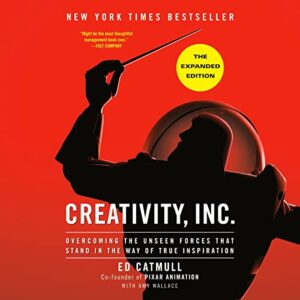The process of interviewing passive candidates is different from applicants. By altering your interview approach, you can access a high quality group of candidates who are recognized contributors to their companies and can make a big difference in your company.
Passive Candidates have Advantages.
- The passive candidates are often more valuable and less risky because they are not motivated by current or looming unemployment. They focus on win/win, which makes for long term relationships.
- Passive candidates make for great skill matches. They are chosen by your recruiter because of their skill match. Both the candidate and the recruiter vet the role requirements well. Passive recruits are less likely to push for a job for which they are not a fit than job seekers.
- Passive candidates tend to be unwilling to put on a facade just to “get a job.”
Passive Candidate Interviews Need to be Different.
- Overall, the process needs to build trust in the mind of the candidate that the candidate will succeed and be rewarded for success at the new company.
- They lack the “need a job” motivation that makes the one-way candidate evaluation work.
- Candidates are employed and doing important work at their employers, so be prepared to reschedule as their organization puts last minute demands on them. Keep in mind that their busyness often indicates the level of contribution and value they can bring.
- Establish a value proposition outside of money. If you can’t find or help the candidate see a non-monetary value proposition, walk away. You cannot afford to pay people to take jobs they don’t really want.
- Focus the process on relationship building with future colleagues and the hiring manager. When these conversations generate excitement, the process picks up momentum.
Approaches by Interview Stage
- The early interview stages need to be about defining a win/win, which is based on fit for both. The interviewer still articulates and requires the necessary skills, but it is couched in a compelling context such as team contribution or value to the organization.
- As the interview stages progress, make sure the peers and hiring manager interviews get time to build relationships in their interviews and avoid the “what can you do for me” interview approach.
- The offer stage is the most delicate. Once you get to the offer, you must make sure the entire process does not devolve into a discussion about base pay. That is done by following a three step offer process.
- Prepare the candidate for the offer. In this step, the recruiter meets with the candidate and prepares them for the next step, which is an offer discussion. All aspects of the upcoming meeting are discussed. Most importantly, the candidate needs to be primed with questions that will permit them to navigate an offer with which they aren’t happy. You want to help them understand how to get the information out of the offer presenter that will help them understand the current and future value of joining the team.
- Make the offer. The hiring manager or someone above that role needs to make the offer. The passive candidate is leaving a (typically) high trust environment where the people, benefits, and compensation are understood. The candidate needs to re-attach to the prospective leader(s) of the organization. Without this, the pressure on salary gets greater because salary is perceived as a risk mitigator. The less risk the candidate perceives, the more the candidate will hear and embrace the full breadth of value from your organization.
- Post offer. All key participants should be directly accessible by the candidate. That includes the external recruiter, the internal recruiter, and the hiring executive. The candidate should be encouraged to call the hiring executive directly with questions. While this may be a change in your organization, the reality is that trust-building cannot be handed off to a proxy.
Dating is a Fair Analogy
The passive candidates is speaking to you because they are interested. There is something they lack in their current situation. They would love to find something better. Keep that in mind because, no matter how much they want to “play poker” in the initial interview, there is a need and they want you to fill it.
Be patient and promote the relationship. Your industry is smaller than you think, and people talk. Make this a great experience whether it leads to an offer or not. Their referral may be the one you hire.
Our Approach
The process above is our process for all candidates. We focus on trust, promoting attachment with your organization, and making sure your brand and reputation are protected for your future success.
One our leaders have learned working for the big accounting firms is that your interviewee, your employee, and your client contact could be your future customer and you need to keep that in mind with every interaction. We help you build an ecosystem of advocates that pays off for years.
_
If you want to improve GGR you need a recruiting partner with a scientific approach to game studio talent transformation. Good games aren’t luck. They are the result of great teams. Click here to find a convenient time to discuss.
If you are interested in a job in gaming, see our Great Opportunities.
Contact us at [email protected].



